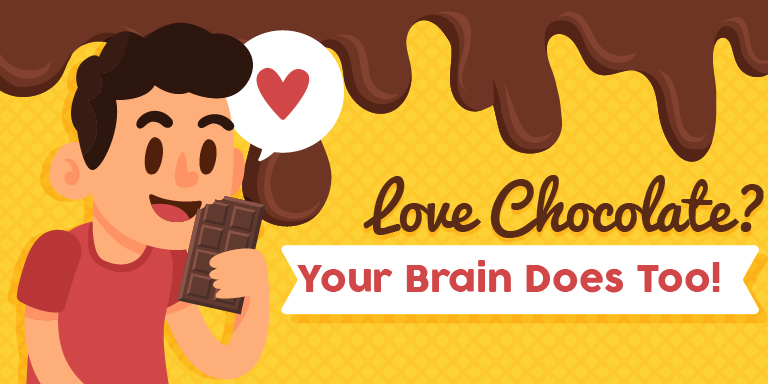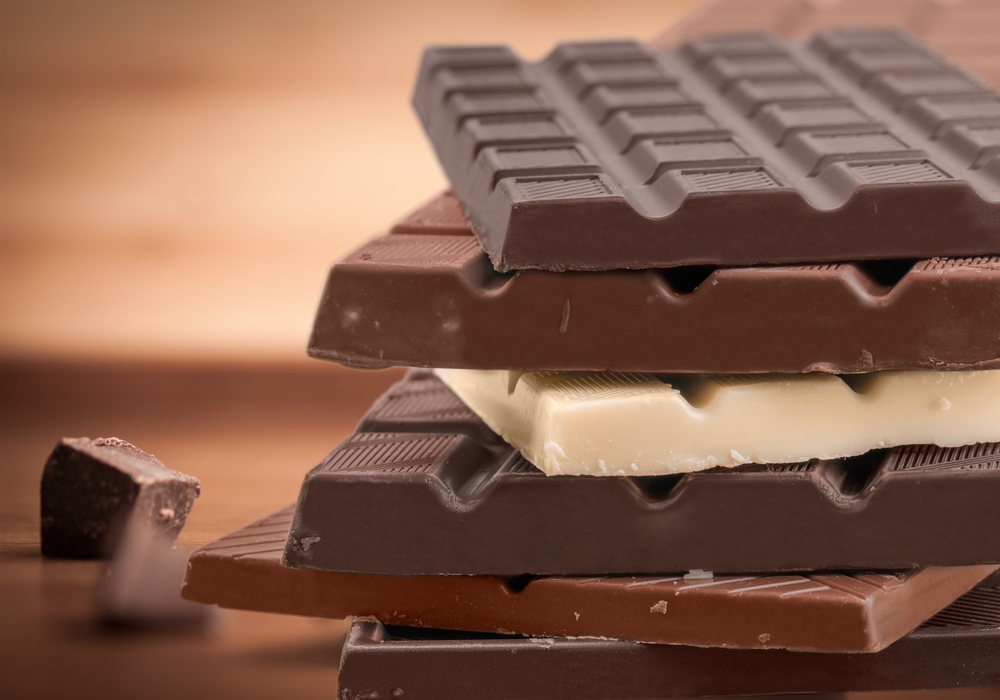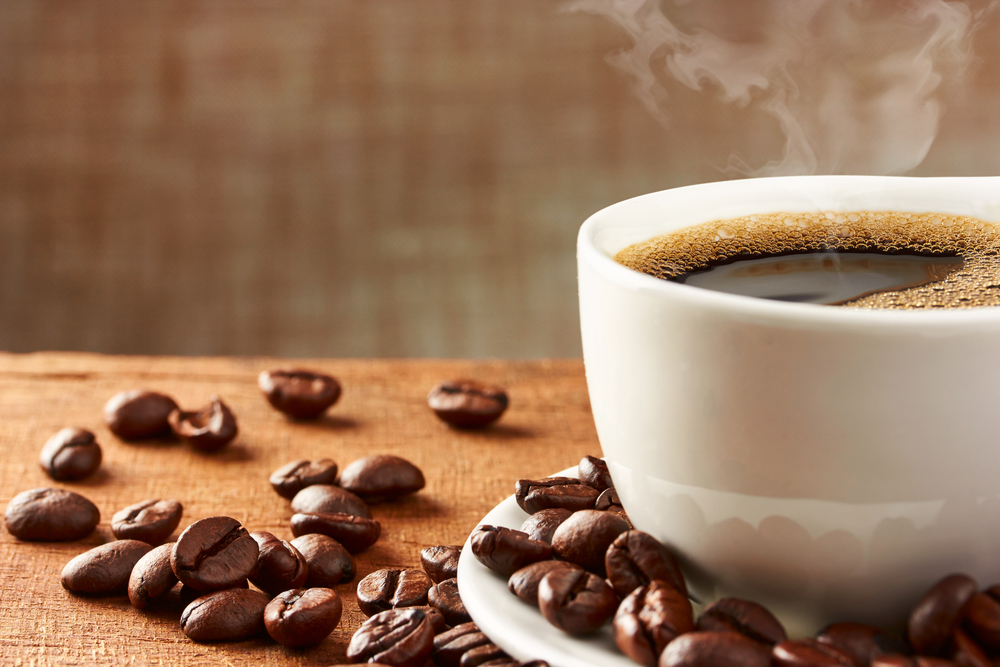late or a decadent chocolate dessert? Besides the fact that you are not alone in feeling this way, it turns out chocolate may actually be beneficial to your health! That’s right — numerous studies show that the chemicals in chocolate (particularly dark chocolate) have immense brain-boosting benefits! From making you happier to helping you curb cravings (yes, that’s right!) to reducing the likelihood of stroke, alzheimer’s, and dementia, chocolate isn’t just delicious, it’s a super food.
So, take a look at some of the ways chocolate helps your brain, break yourself off a hunk of dark chocolate, and embrace the health benefits of your favorite food.
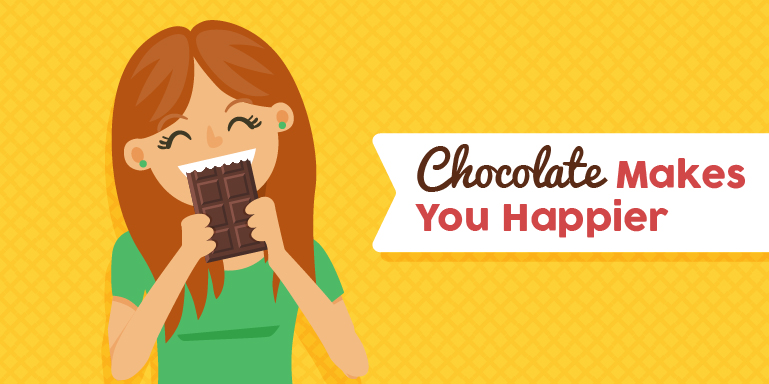
Chocolate Makes You Happier
Having a bad day? Eat some chocolate. Chocolate actually does make you happier. Chocolate boosts the production of endorphins which bind with opiate receptors in the brain to induce euphoria. Its also a source of tryptophan, that notorious post-Thanksgiving amino acid, which is actually a precursor to serotonin, the neurotransmitter that promotes positive thoughts and good moods. Chocolate can also give you a natural high — it contains anandamide, also known as the “bliss molecule,” which results in effects similar to THC. Lastly, chocolate has long been considered an aphrodisiac and with good reason. It contains compounds that generate a brain buzz similar to the sensation of being in love. If you need to brighten your day, chocolate is an instant mood lifter.
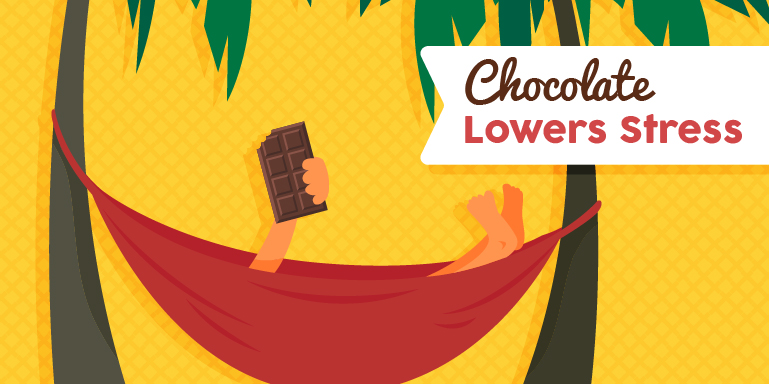
Chocolate Lowers Stress
Chocolate is one of the highest sources of magnesium in our diet, an essential vitamin for combatting stress. Magnesium suppresses the release of the stress hormone cortisol, helping to calm us and fight rising feelings of stress. It also improves mood more generally and helps with sleep, which is good because the more well-rested we are, the less stress we experience.
Not only that, but chocolate can also fight physical signs of stress by preventing free radical damage (that is, the deterioration that occurs when unattached oxygen cells attack our cells). Free radical damage hastens signs of aging and blemishes, as well as aging our brain cells. With its abundance of antioxidants (more than many of the usual suspects like blueberries and acai), chocolate helps slow free radical damage, keeping our brain cells in tip top shape and preventing premature aging. Indeed, some studies have even found that chocolate can help protect our skin against sun damage for this same reason.
Chocolate Reduces Cravings
We know what you’re thinking — chocolate is the number one thing I crave, so how can it possibly reduce cravings? It sounds crazy, but it does. Studies have found that eating small amounts of dark chocolate can actually help you lose weight. Don’t get us wrong — mass-produced, cheap chocolate is no miracle worker — it increases cravings, rather than reducing them. But dark chocolate is another story. Just a small amount of dark chocolate has been shown to reduce our cravings for other types of junk food, including salty, sweet, and fatty foods. Oddly, this does not seem to be linked to the chemical makeup of chocolate alone, but also to the experience of eating chocolate itself.
Other studies found that melting a small amount of chocolate on your tongue 20 minutes prior to eating helps send the brain signals that you’re full, helping to prevent overeating and cut back on your intake. Consuming good chocolate after a meal can also help reduce mid-afternoon or late night snacking. Thus, chocolate can help us break some of our worst snacking habits and reduce our cravings for empty calories — in the long run, this can assist with cutting calories and weight loss overall.
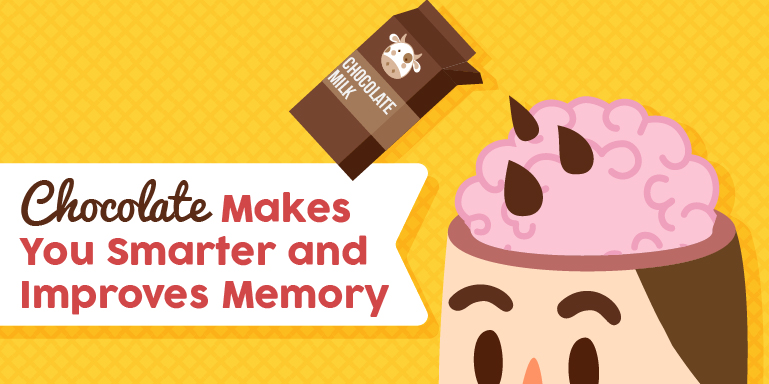
Chocolate Makes You Smarter and Improves Memory
Eating chocolate is the smart choice! It can help improve problem-solving skills, memory, focus, and more. Chocolate boosts blood flow to the brain, which in turn improves memory and attention span. Studies found that those that drank two cups of hot chocolate did 30% better on a memory test, suggesting that cocoa consumption can aid with memory and mental decline.
Flavonoids, which are contained in cocoa, accumulate in the hippocampus, the area of the brain associated with learning and memory. One study found that this effect improved performance on standardized cognitive tests. In research recounted by The Telegraph, scientists reported, “”More frequent chocolate consumption was significantly associated with better performance on [tests including] Visual-Spatial Memory and Organization, Working Memory, Scanning and Tracking, Abstract Reasoning, and the Mini-Mental State Examination.”
Similarly, caffeine, which is found in chocolate, can improve memory and concentration in low doses — typically, chocolate contains lower amounts of caffeine than coffee or tea, helping to improve focus without potentially keeping you up all night.
Think a correlation between eating chocolate and intelligence is crazy? The New England Journal of Medicine published a study definitively proving that the more chocolate a country consumes, the more Nobel Prize winners it produces. Chocolate improves brain plasticity, which has been linked to increased intelligence.
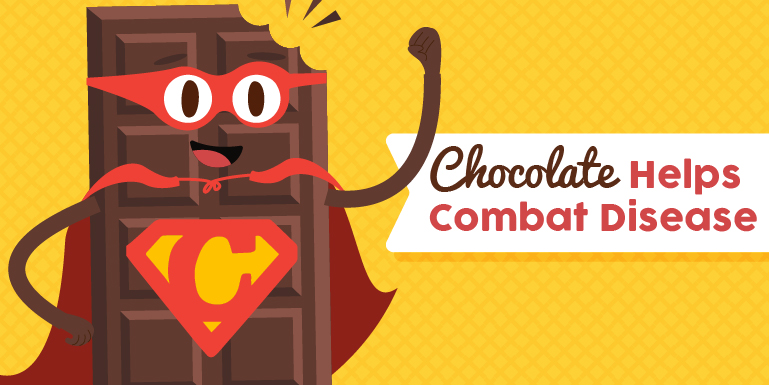
Chocolate Helps Combat Disease
You might have already guessed this based on chocolate’s other benefits, but chocolate consumption has been linked to a reduced risk of stroke, dementia, and Alzheimer’s disease. Because it helps improve brain plasticity and promote memory, chocolate likely helps protect against normal age-related cognitive decline, but it can also help prevent more serious medical problems. Various studies have linked chocolate to reducing risk of stroke, heart attack, lowering cholesterol and more.
The intense antioxidants found in chocolate decrease the risk of dementia in seniors, with one study finding a direct correlation between the amount of chocolate one consumed and their risk of dementia. Indeed, some seniors already exhibiting symptoms of mild cognitive impairment actually found their symptoms lessen and cognition improve following chocolate consumption. Many also suspect that Alzheimer’s is a brain-based form of diabetes, and chocolate can help combat insulin resistance, which is one the primary symptoms of diabetes. Thus, chocolate can prevent and in some cases, even reverse, deterioration of brain function tied to aging.
Chocolate can also act as a probiotic, increasing good bacteria in your intestines, which in turn is good for your brain. This may sound strange but the promotion of good gut bacteria can help create even more antioxidants, which helps keep the brain healthy and promotes the development of healthy new cells.
Whether you’re a college student looking for increased focus on a test, a twenty-something looking to cut back on late afternoon cravings in the office, or a person in late middle age who wants to improve memory and fight dementia and other forms of aging/brain deterioration, chocolate has a lot to offer. So, invest in some yummy dark chocolate and enjoy some every day with no guilt.

